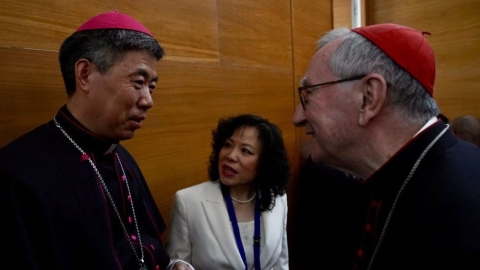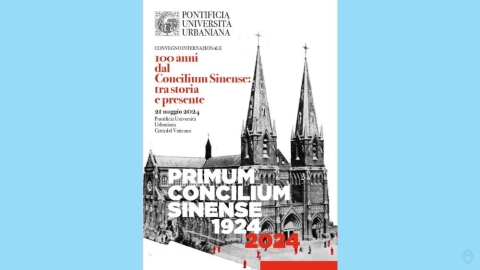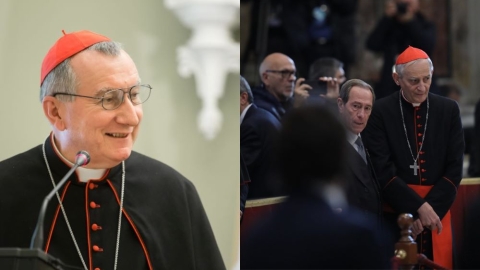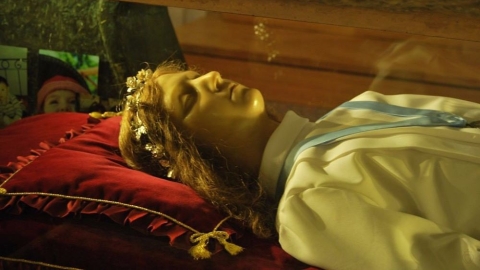France: Bishop Rey Clarifies Rome’s Sanctions

St. Léonce de Fréjus Co-Cathedral
After the suspension of ordinations in the diocese of Fréjus-Toulon, ordinations to the diaconate and to the priesthood did not take place as planned on June 26, 2022 in Toulon. On that same day, Bishop Dominique Rey clarified in a press release the reasons which pushed Rome to make this radical decision for his diocese, on June 2, 2022. However, he is not able to speak about the future of the ten “future ordinands,” whose future remains in question “pending Rome’s decisions.”
Wishing to give “a follow-up and clarification” after Rome’s decision, the prelate specifies that he is “in dialogue with the Roman authorities, Cardinal Marc Ouellet more directly, in order to raise the questions that remain and to find all possible means to improve the functioning of the diocese, the accompaniment of the communities, and the reception and formation of vocations.”
He also made the assurance that he maintains a relationship of trust with Cardinal Jean-Marc Aveline, Archbishop of Marseille, who led the visit to his diocese at the request of Rome.
Bishop Rey explains that “it is indeed the origin of the vocations and the plurality of the paths of formation” which posed a problem with Rome (and not questions of morals), as well as “the diversified composition of all the priests of the diocese” and the acceptance “of many communities with whom it is sometimes difficult for the diocese to accompany and integrate.”
Faced with “the weaknesses, the failures, the difficulties observed in some of these communities” during the twenty-two years of his episcopate, the bishop confesses to having “made errors of discernment regarding their reception or the accompaniment of their members, as in that of certain priests of the diocese.” He “sincerely asks for forgiveness” from all of them.
The bishop of Fréjus-Toulon adds that the reception and “the place reserved for the traditionalist world in the diocese and its Seminary La Castille also constituted one of the sensitive points raised by the Roman congregations.” He makes a point of specifying that he “has always sought to integrate this current, within a true ecclesial communion, in fidelity with the Holy Father, and with the Roman magisterium, in particular the Second Vatican Council.”
“Think about improving certain areas of governance”
While “waiting for Rome’s decisions,” Bishop Rey wishes “to take advantage of the coming weeks to reflect on improving various approaches to governance.” Especially :
– to “strengthen the methods of monitoring the various communities received”;
– “to make more fluid the relations between the different liturgical sensitivities, to work for unity and communion around the Magisterium of the Church”;
– “to organize a cycle of pastoral visits throughout the territory of the Var which will take place from the start of the next school year.”
In response to the “constant challenge of unity”, the Bishop of Toulon announces that recommendations made after the pastoral visits are “being implemented today: the project of affiliation to the Catholic Faculty of Lyon, the project of inter-seminary formation of Provence, the improvement of the monitoring and discernment of seminarians, etc.” With this in mind, the diocesan Seminary of La Castille will no longer be independent
Bishop Rey had previously suspended two members of the small community of the Monastery of St. Benedict, of traditional Benedictine spirituality, who had come from Melbourne, Australia, after learning of their ordination as priest and deacon respectively on April 20, in secret and without his consent, by an unnamed “senior prelate in unimpeded communion with the Holy See.”
This measure specially sanctions the prior of the monastery, Dom Alcuin Reid, ordained a priest by a bishop he met during a visit to the Vatican. In addition, in a decree of June 10, Bishop Rey decided to abolish the public association of the faithful entitled “St. Benedict Monastery,” which he had erected in 2019 in recognition of this community. Likewise, the bishop decided to withdraw the permission to establish an oratory that had been granted to them.
The diocese of Fréjus-Toulon made a point of specifying that, “the investigations carried out at the time of [his] reception showed that Alcuin Reid was not implicated in any case of abuse, had not committed any illegal act, and was not subject to any sanction, civil or canonical.”
Related links
(Sources : cath.ch/i.media/diocèse fréjus-toulon/la croix/DICI n°422 – FSSPX.Actualités)
Illustration : François de Dijon, CC BY-SA 4.0, via Wikimedia Commons





